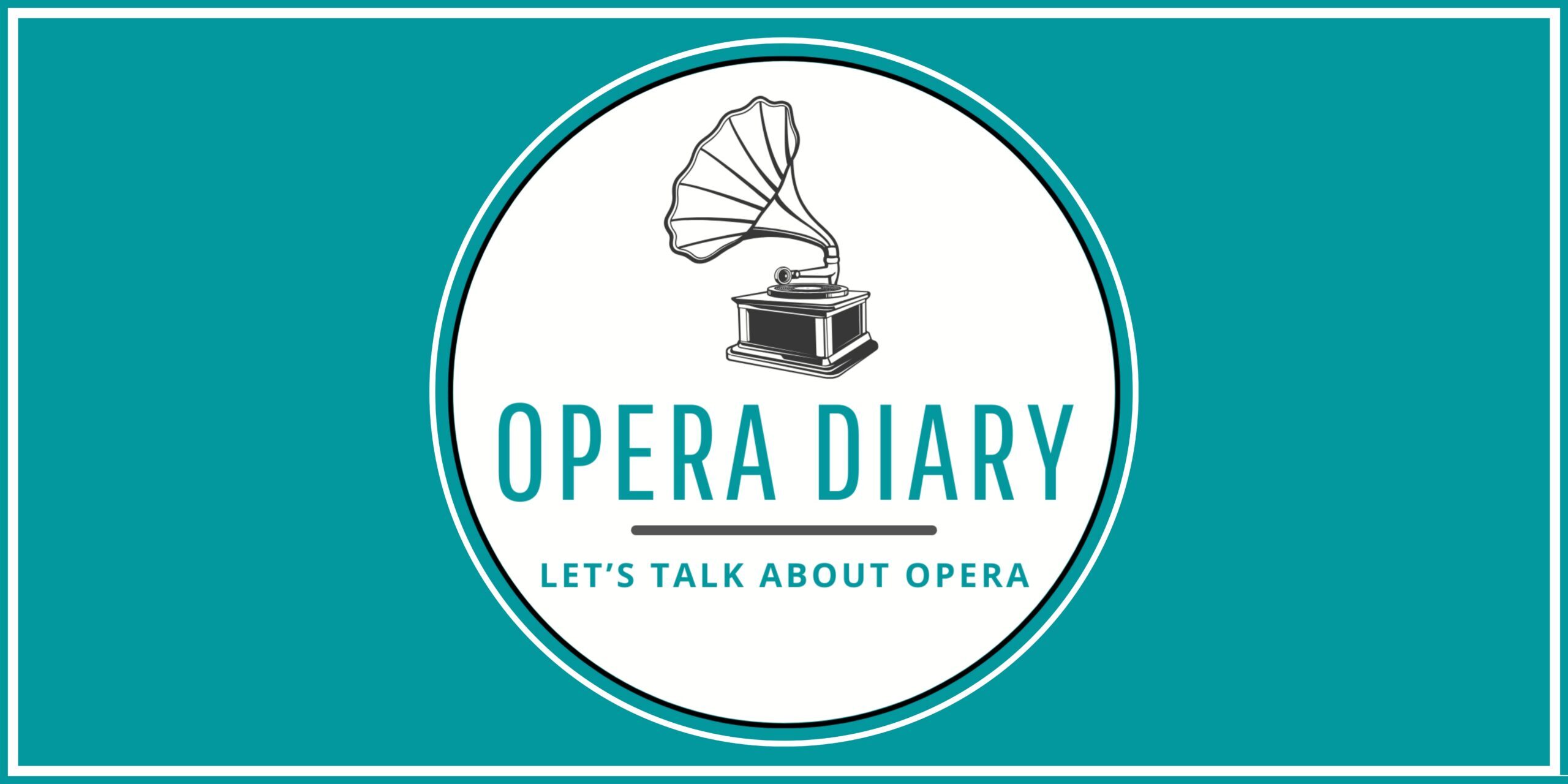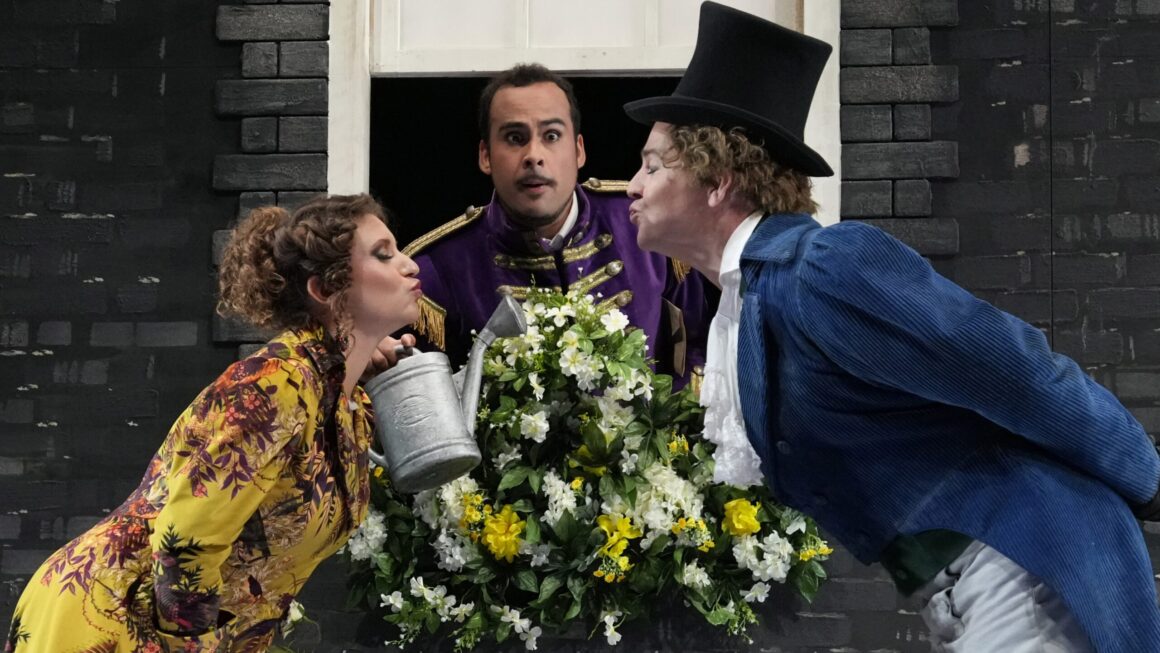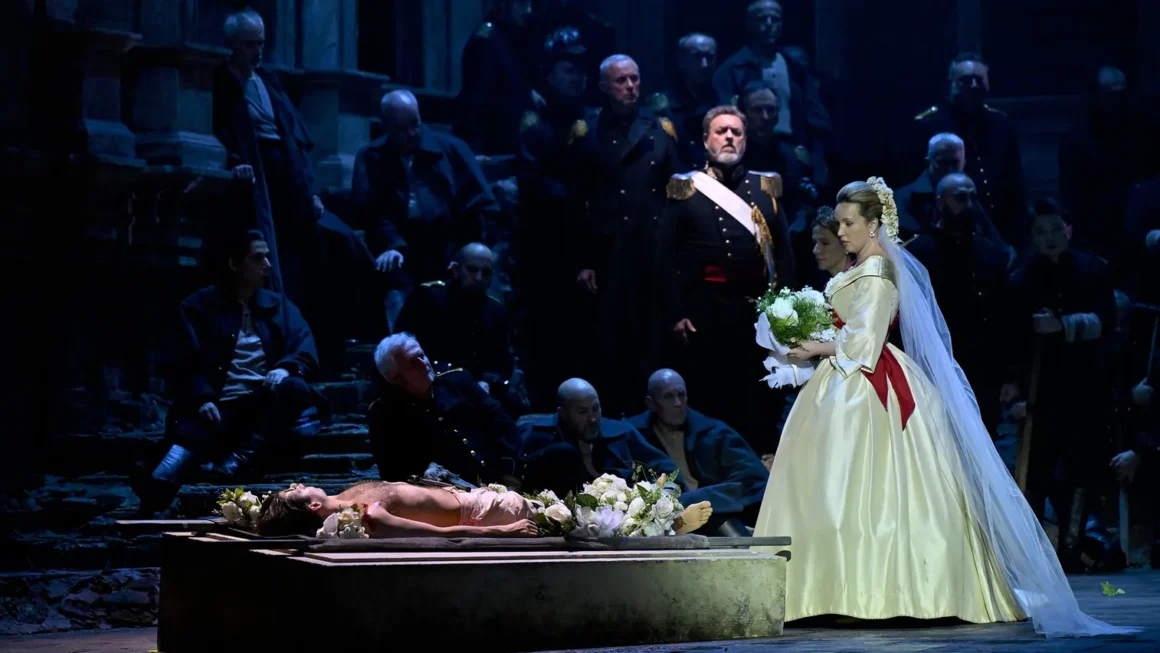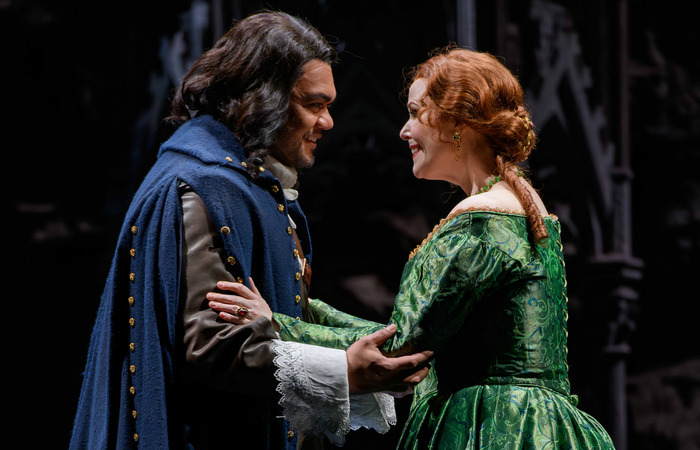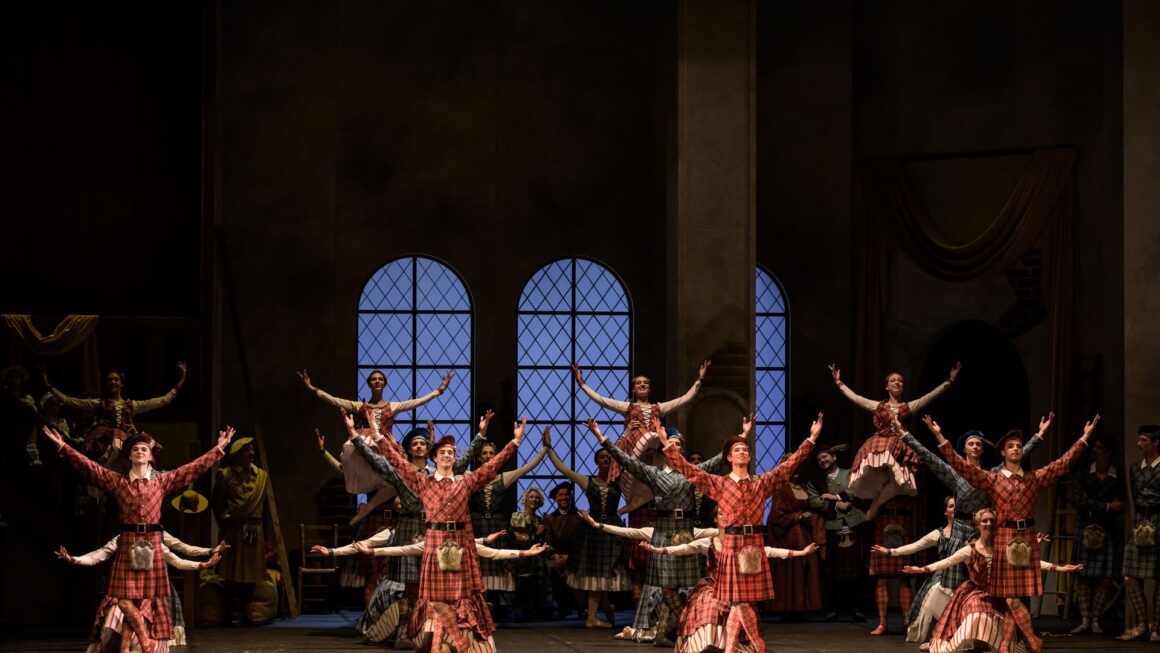His first opera to be performed on stage, “La cambiale di matrimonio” was composed by Rossini when he was just 18, having been hired as an opera composer for the Venetian Teatro di San Moisé, which specialized in comic operas and one-act farces. First performed on November 3, 1810, the opera was a great success, with further 15 performances. Rossini’s genius is already evident, beginning with the symphony’s perfect structure, the musical invention, and the appearance of the famous “crescendo rossiniani.” Gaetano Rossi’s excellent libretto is a typical eighteenth-century plot that nods to Cimarosa’s masterpiece, “il matrimonio segreto”: two young protagonists secretly in love, a wealthy English merchant who wants to marry his daughter to his mature Canadian correspondent Slook, with the continent America that also makes its entrance into the opera. And finally, Fannì and Edoardo that are able to marry because the indignant American refuses the marriage imposed by this absurd European rule, thus returning to the young lovers the marriage bill “la cambiale di matrimonio”!
For the 2025 edition of the ROF, a 2020 production, staged outdoors due to COVID, has been revived. The director, Laurence Dale, taken off his tenor clothes, has dedicated himself successfully for years to directing and conducting. Laurence Dale sets the story in a English style 19 th -century, with a house facade showing a door and windows, and frequent openings to reveal the interior. The beautiful scenes are complemented by a fresh and graceful direction, meticulously crafted in detail and in the singers’ performances. Completely respectful of the music and the spirit of Rossini’s farce, the only betrayal of the libretto is the arrival, along with the stranger Slook, of a massive bear who immediately becomes an integral part of the ensemble.
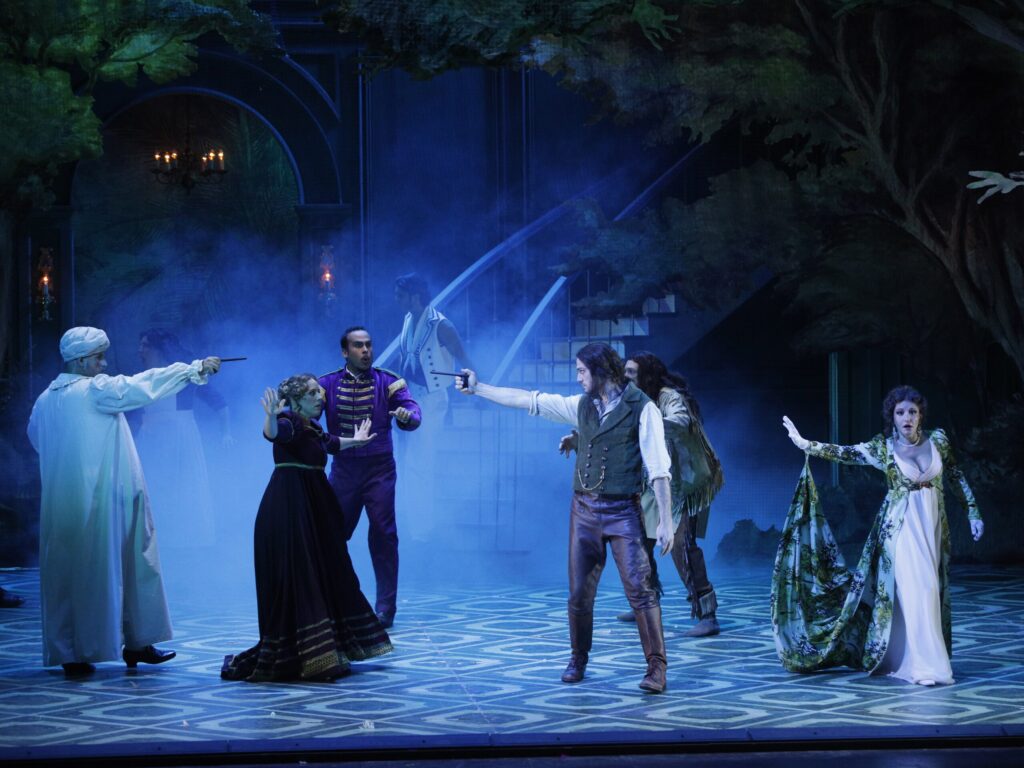
The complete success of this show is due to the excellent singing company assembled, particularly in the roles of the two basses of the farce. Pietro Spagnoli plays Tobia Mill, a comic bass role with a high-pitched, syllabic canto. With Spagnoli, the Festival proposes the “male version of Daniela Barcellona”, the Roman singer having been an habitué since 1989. The voice is always beautiful and full, his mastery of sillabati and Rossinian style is perfect; the “aria del mappamondo” was superbly executed with flawless diction and theatrical phrasing, which perfectly portrays the character of the grumpy old father.
Mattia Olivieri plays the Canadian Slook, a noble bass role with a central tessitura, impressing from the opening cavatina with his excellent vocal and acting skills. Olivieri reveals himself to be an ideal and irreplaceable interpreter for this repertoire. His soft, mellow voice, his singing that enhances and interprets every single accent and word, combine with a physicality that breaks the stage, enhancing his already notable acting skills. In the duet between Tobia and Slook, “Dite, presto, dove sta,” Spagnoli and Olivieri engage in a competition of bravura that builds to an irresistible crescendo. The rest of the cast, both the lovers and the servants, gave good performances.
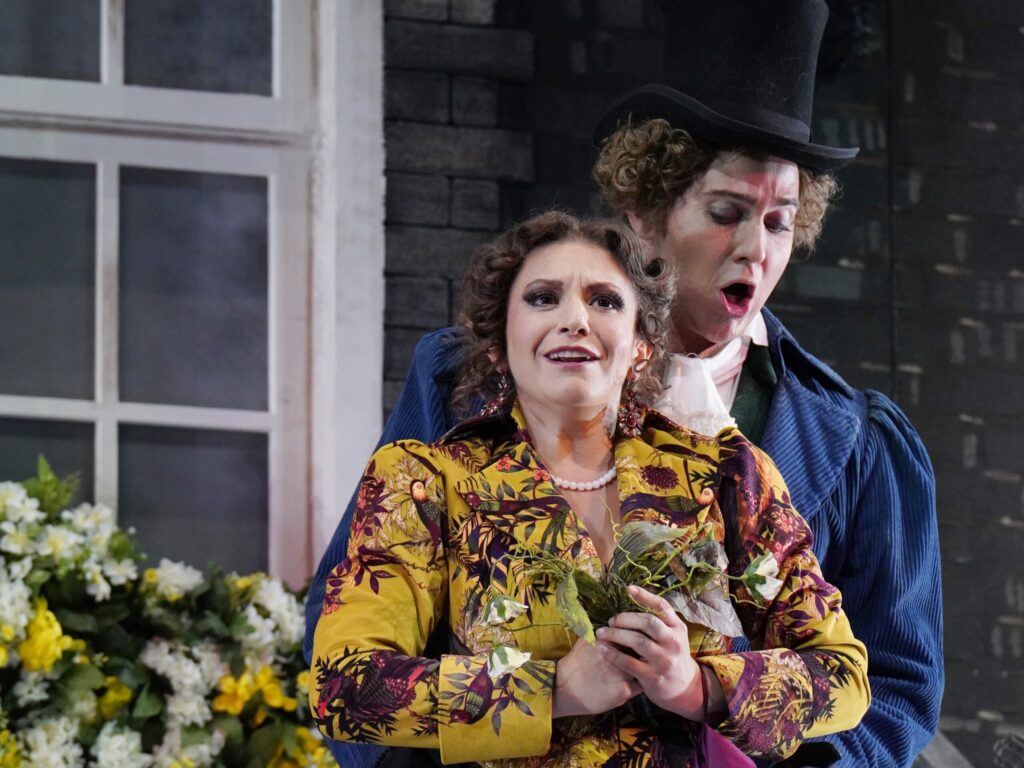
Paola Leoci is a Fannì with a clear and pleasant voice, which easily reaches the high notes, and delivers a fine performance of the opera’s most famous aria, “Vorrei spiegarvi il giubilo,” a gem by the eighteen-year-old Rossini that has also captivated prima donnas such as Sutherland and Scotto. Jack Swanson plays the lover Edoardo Milfort with a clear tenor voice, good technique, and stage presence. Christopher Franklin, leading the Filarmonica Giochino Rossini, conducts with verve and talent, giving the farce the right theatrical rhythm. Giulio Zappa’s excellent fortepiano accompaniment is noteworthy.
The evening, which was preceded by a performance of the Soirées Musicales, transcribed for chamber orchestra by Fabio Maestri, saw a sold-out audience, which celebrated all the artists who performed a truly successful show.
CAST
Tobia Mill– Pietro Spagnoli
Fannì – Paola Leoci
Edoardo Milfort– Jack Swanson
Slook– Mattia Olivieri
Norton : Ramiro Maturana
Clarina: Inés Lorans
Conductor: Christopher Franklin
Director: Laurence Dale
Settings and Costumes: Gary McCann
Lighting designer: Ralph Kopp
